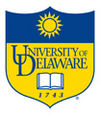|
|
| Line 28: |
Line 28: |
| ! <h2 style="margin:0;background-color:#cef2e0;font-size:120%;font-weight:bold;border:1px solid #a3bfb1;text-align:left;color:#000;padding:0.2em 0.4em;"> Course Topics</h2> | | ! <h2 style="margin:0;background-color:#cef2e0;font-size:120%;font-weight:bold;border:1px solid #a3bfb1;text-align:left;color:#000;padding:0.2em 0.4em;"> Course Topics</h2> |
| |- | | |- |
| |style="color:#000"|[[Image:Kbeqn.png|left|350px]] The course provides a hands-on experience for graduate students in sciences (physics, chemistry) and engineering (electrical, chemical, materials), as well as advanced undergraduates, to analyze electronic structure and transport properties of basic classes of carbon, semiconductor, and magnetic nanostructures explored at the current research frontiers. | | |style="color:#000"|[[Image:Nanoflyer.png|left|350px]] The course provides a hands-on experience for graduate students in sciences (physics, chemistry) and engineering (electrical, chemical, materials), as well as advanced undergraduates, to analyze electronic structure and transport properties of basic classes of carbon, semiconductor, and magnetic nanostructures explored at the current research frontiers. |
| |- | | |- |
| |style="color:#000"|{{Course Topics}} | | |style="color:#000"|{{Course Topics}} |
Revision as of 18:06, 31 August 2009
PHYS 824: Introduction to Nanophysics Wiki
The course Website is embedded into UD Sakai |
|
|
Course Topics
|
| The course provides a hands-on experience for graduate students in sciences (physics, chemistry) and engineering (electrical, chemical, materials), as well as advanced undergraduates, to analyze electronic structure and transport properties of basic classes of carbon, semiconductor, and magnetic nanostructures explored at the current research frontiers.
|
- Nanostructures in equilibrium: graphene and other two-dimensional materials, carbon nanotubes, topological insulators, magnetic multilayers.
- Nanostructure out of equilibrium: conductance quantization, quantum interference, spin-dependent tunneling, spin and quantum Hall effects, spin-transfer torque, I-V curves.
- Theoretical techniques: elements of density functional theory (DFT), Landauer-Büttiker scattering formalism, nonequilibrium Green function techniques.
- Experimental techniques: scanning tunneling and atomic force microscopy.
- Applications: nanoelectronics, spintronics, thermoelectrics.
|
Lecture in Progress
|
- Application of Landauer-Büttiker formula to quantum interference effects in electronic transport
|
|
News
|
- Final Project is posted and due on Friday 12/16 as poster presentation in Sharp Lab 225 at 2:00PM.
|
Quick Links
|
|
|
|
Wiki Getting Started
Consult User's Guide for information on using the wiki software.

